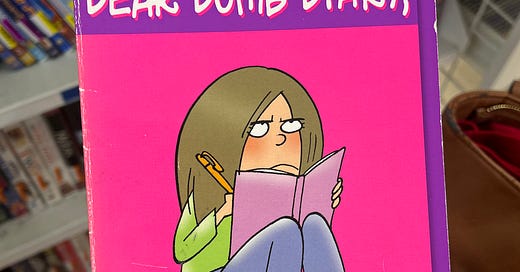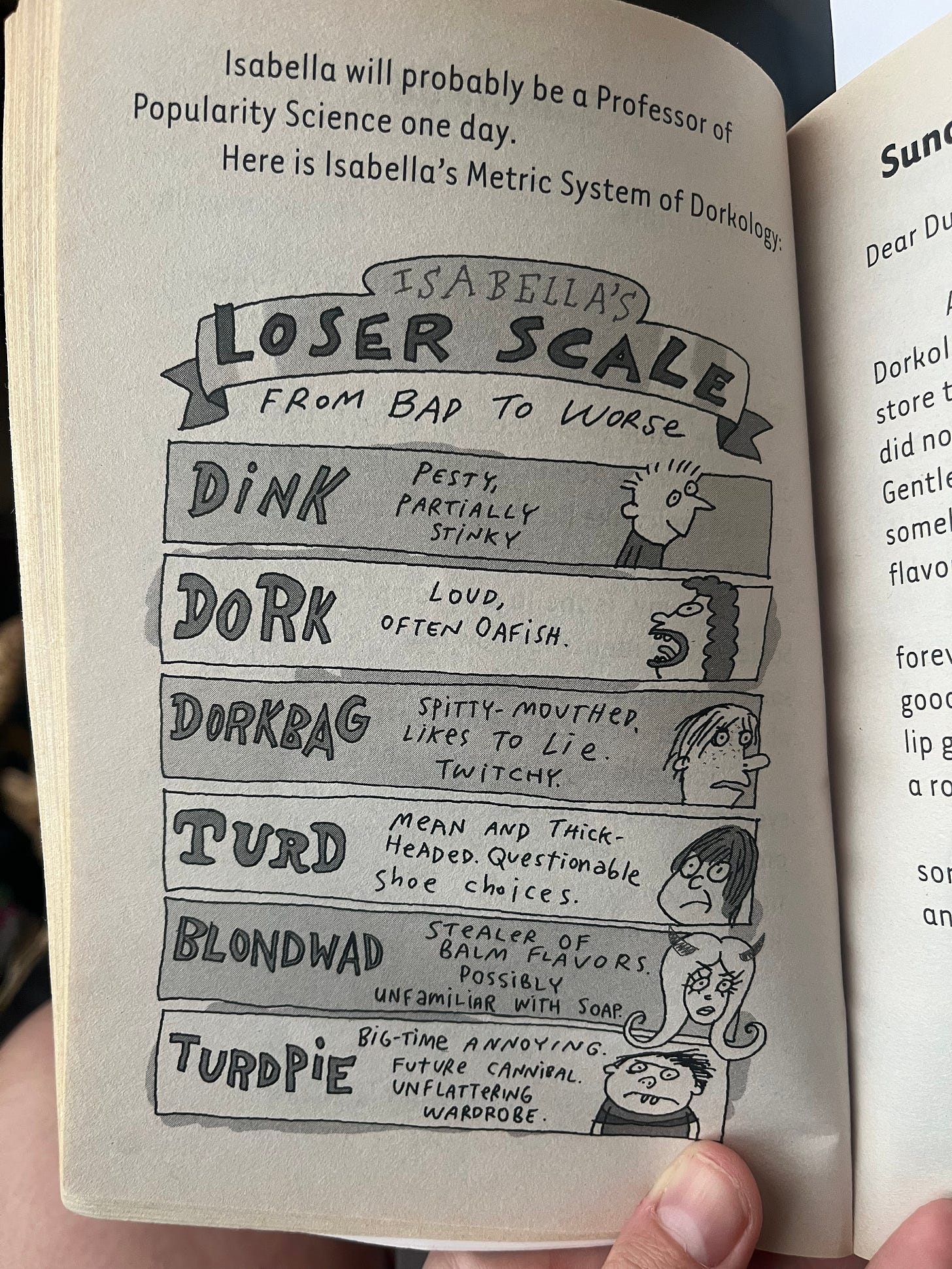I fear my muse may come from the dumbest of places. Please, let me explain.
A few months ago over a plate of Costco pizza, my friends and I discussed which books shaped us most as kids. Most of our answers came from classic English class pick: Moby Dick, The Great Gatsby, Catcher in the Rye, the list goes on.
My answer is usually Catch-22. It was the first book I remembered reading in high level literature that made me actually laugh out loud with its Airplane!-like puns and its Arrested Development-like humor. I guess it was also the fact that Catch-22 wasn’t as depressing or dystopian as much as the other books in our lineup, so it wasn’t much too hard to pick as a frontrunner.
That answer always seemed true, until I stumbled on one of my oldest and dearest memories at Savers last week. Maybe you might remember, Dear Dumb Diary.
If you didn’t pick it in middle school or buy it from a Scholastic book fair by in its heyday, this book had everything. Middle school crushes. Deranged diary entries. Unreliable narrators and proposed popularity-o-meters.
It’s a series as told by middle schooler Jamie Kelly and all of her tortured, tween troubles. From inedible lunches to rambunctious cousins, middle school misfortunes to frenemy dynamics, I remember it felt like someone finally dropped a book worth reading onto my lap.
It’s told from the perspective of her diary, a format made for big, frivolous feelings that didn’t have to be masked by maturity or read by real adults. I think it was my first real introduction into comedy, offering me space to be a teenager: angsty, annoying, and allowed to be unreliable. I stayed up late past my bedtime, reading tales about all-too-perfect Angeline (and her stupid beautiful hair), Jamie’s could-be-cooler (if she tried) best friend Isabella, and her not-so-secret crush, Hudson Rivers (aka, the eighth-cutest guy in school). I didn’t have crushes and enemies by those particular names, but I still knew them all the same.
It was ridiculous and relatable. Chock full of attitude and charm. At the time I read it, I was writing in my own journals too, and it was the first time I felt like someone understood my thought process. For the first time in my memory, I wasn’t reading something written to impress or impart wisdom on anyone. Hell, I don’t think it was even meant to make anyone feel just or joyful. Like the words I kept hidden myself, it was the first time all secret thoughts got a space, and flippant feelings had a place.
Fifteen years later, I picked it up off the shelf and think, “Huh, maybe this was my most formative book growing up.” Can I even admit that? Am I supposed to say something more impressive like 1984? Jane Eyre? The Bible?
Truth be told, I still wrestle with these teenage feelings in my own writing all the time. I want to be more mature, more poetic, and more esoteric than I really am. I’m constantly torn between wanting to write thoughtful theses and coming up short with juvenile journal entries. Just look at this piece I wrote last year from my own dumb diary:
Are you ever angry? Do you get as angsty as I do? Do you listen to the lyrics of Olivia Rodrigo and silently (or saliently) bob your head with a slight sense of vitriol, or do you leave that for softer, nice, kinder words bobbing to newer, different tunes? I don’t typically experience jealousy, at least not the kind that rumbles up enough to recognize. Rarely do I want to trade places with people or covet their gifts. But call up Gabriel! Here I am, coveting!
Sometimes my writing is just so stupid. It’s angry and angsty. It’s teenage. It’s stupid. It’s all the thoughts and processes I never wrote in my journal at 15 or 10 or 5 because I was too afraid someone would stumble upon my words someday. But in fact, I just needed honesty with my feelings more than anything.
I wish I’d learned how to process this pop princess diva stuff sooner. I wish I knew it was always, actually welcomed.
Maybe I liked this series because it gave me permission to write. Maybe I liked it because it offered more permission to laugh. In so many ways, I didn’t need it to be anything in middle school. I just needed something that was honest, or interesting, or made me feel human.
Some days, I think I’ll grown out of my big, childish feelings and favorite childhood books. Some days, I even wonder when I’ll grown the hell up and find something worth writing that isn’t immature for its age.
But some days, at my best, I believe the most funny and flippant are the truest ones, too. Some days, the most honest things I write are the most human. And on those days, I’ll try my hardest to let both of those voices be my muse.
P.S. Where else can you find a Loser Scale? Please riddle me that.





